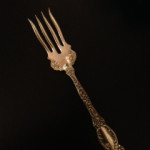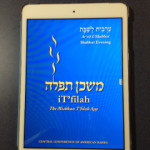 Father’s Day is one of those days that got dropped from my personal calendar when my father died almost ten years ago. It’s not that I don’t want to honor fathers in general, and I encourage my children to find ways to celebrate their father. But it lost some resonance for me when I became fatherless.
Father’s Day is one of those days that got dropped from my personal calendar when my father died almost ten years ago. It’s not that I don’t want to honor fathers in general, and I encourage my children to find ways to celebrate their father. But it lost some resonance for me when I became fatherless.
It’s not exactly that Father’s Day pierces my heart when it rolls around every year. It was never a big celebration in our family when I was growing up, and for that matter neither was mother’s day. I miss my father much more on his birthday, which he enjoyed with the glee of a little boy, or on his yahrzeit, always a day of sadness and what-ifs. And I miss him on important family occasions where his absence is especially felt, like my kids’ bat and bar mitzvahs, college acceptances, high school graduations, and the like, where he is glaringly absent in the family photos.
But still, when Father’s Day rolls around there is a feeling of sadness, and emptiness. So in honor of Father’s Day, and in memory of my father, here’s a poem about him that I wrote a few years back.
To My Father, 1934-2003
The World Series
While machines flashed red numerals
hope, despair, hope
your long graceful fingers
reached up from your ICU-induced sleep state
to trace figures in airborne columns of debits and credits.
Yiddish was your first language
but numbers were your native tongue.
Balance sheets spoke to you of nuance,
challenges mastered and tamed,
the stories and dramas of the universe.
Numbers talked,
and you answered.
You wrote your life story in their epic language
of plusses and minuses.
Ebbetts Field was your princely realm,
a boyhood kingdom in which
the beauty and order of stats
kept the chaos away.
“Peppy” they called you in high school
because Pepsi’s kept you sharp.
The reliable math of poker and
the clean geometry of pool sharking
provided cool cash
stored always in serial number order.
Becoming an accountant
provided an arithmetic solution
to the sum of your first-generation yearnings.
Controlling the figures in ledgers and spreadsheets
supplied the way to amount
to a man of substance.
You would have loved tonight’s game
a four-of-four sweep for my son’s team.
As we watched, his eyes on the screen and my eyes on him,
he held forth in that language of
stats and averages, innings and outs,
that I haven’t heard since your numbers went still.
Copyright © Hara E. Person
July 14, 2008


